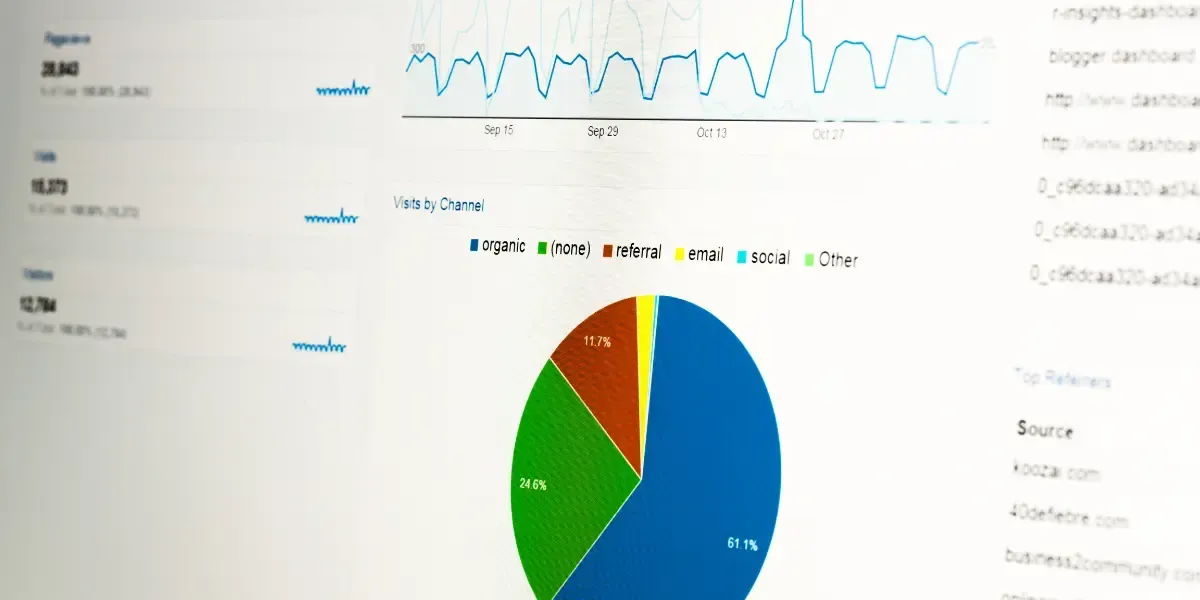How To Optimise Product Pages For Better E Commerce Seo

E-commerce can seem like a daunting task when it comes to SEO, especially when your product range boasts thousands of products. Optimising each and every page may feel overwhelming, but it’s a critical step to maximise your online visibility and drive more qualified traffic to your website.
Contents
- Keyword Research for Ecommerce
- Optimising Product Information, Meta Tags and More
- Optimise Your Product Pages with Customer Feedback
- Optimising for User Experience in E-Commerce
- How Can Structured Data Help with E-Commerce?
- Internal Linking for E-Commerce
Listen to this article
This blog will delve into the importance of optimising product pages for better e-commerce SEO. Implementing effective strategies and techniques can significantly enhance your website’s search engine rankings, attract more potential customers, and ultimately boost your online sales.
So, let’s explore the key factors and actionable insights that will help you optimise your product pages for greater SEO success!
Keyword Research for Ecommerce
Keyword research is often overlooked in e-commerce, yet it is crucial in driving website performance analysis and targeted traffic to your product pages.
Understanding the significance of keywords and knowing how to choose the right ones can make a world of difference in the success of your online business. Keywords bridge what users are searching for and the products you offer, helping search engines match relevant queries with your content.
Conducting thorough keyword research can uncover the exact phrases and terms potential customers use to find products like yours. This enables you to optimise your product pages effectively, improving their visibility and increasing the chances of attracting qualified leads.
But how do you choose the right keywords? Combining industry knowledge, market trends, and diligent analysis requires identifying high-value keywords that align with your product offerings and target audience.
The goal is to strike a balance between search volume and the level of competition, selecting keywords with sufficient search traffic but not overly competitive. Using well-chosen keywords can enhance your product pages’ visibility, drive organic traffic, and boost your e-commerce success.
Optimising Product Information, Meta Tags and More
Once keyword research is done, you can start crafting your product titles, descriptions, and other elements to captivate search engines and customers. Creating compelling product titles and descriptions drives organic traffic to your online store or website.
By strategically incorporating relevant keywords into your titles and descriptions, you can improve your search engine visibility and attract potential customers actively searching for products like yours.
However, it’s important to strike a balance between optimisation and readability, ensuring that your titles and descriptions appeal to search engines and resonate with your target audience.
In addition to optimising your product titles and descriptions, don’t overlook the power of optimising your product URLs, meta tags, and headers. These elements significantly improve your website’s visibility in search engine results pages (SERPs).
By aligning your URLs, meta tags, and headers with your targeted keywords, you can enhance your website’s relevance and ensure that search engines understand the content and context of your product pages. Implementing these strategies will boost your search engine rankings and make your products more discoverable and appealing to potential customers.
Optimise Your Product Pages with Customer Feedback
Conversion rate is crucial when it comes to e-commerce, and one effective way to increase it is by leveraging user-generated content and reviews. Showing off your positive customer feedback not only builds trust with potential buyers but also boosts your website’s search engine optimization (SEO).
User-generated content, such as testimonials, ratings, and reviews, serves as authentic social proof that can influence purchasing decisions. When prospective customers see real people endorsing your products or services, they are more likely to convert into paying customers.
Additionally, search engines value user-generated content as it provides fresh, relevant, and unique content, which in turn improves your website’s visibility in search results.
By encouraging and showcasing user-generated content and reviews, you not only enhance your SEO efforts but also increase conversions by instilling confidence in your brand and creating a sense of community around your offerings.
Optimising for User Experience in E-Commerce
Page and user experience are crucial when it comes to e-commerce, ensuring your page loads quickly, is responsive, and delivers a seamless browsing experience.
One important aspect of optimizing product pages is focusing on product images. Images play a vital role in attracting customers and conveying the value of your products.
However, they can also negatively impact page load times if not optimized correctly.

To strike a balance between visual appeal and performance, it’s essential to compress images without compromising quality. By reducing file sizes, you can significantly improve load times, leading to higher search engine rankings and a better user experience.
Mobile optimization is another critical factor in today’s digital landscape. With the increasing use of smartphones and tablets for online shopping, ensuring your product pages are mobile-friendly is paramount. Responsive design allows your website to adapt seamlessly to various screen sizes, optimizing image sizes and layouts for mobile devices.
This approach ensures that your product images are displayed correctly and load quickly, regardless of the device being used. Prioritizing mobile optimization and responsive design for your product pages ultimately leads to enhanced user satisfaction, increased conversions, and improved search engine visibility.
How Can Structured Data Help with E-Commerce?
Structured data is a powerful tool that can significantly enhance visibility in search results and drive more organic traffic to your website. It involves using HTML markup to provide search engines with specific information about the content on your web pages.
By structuring data in a standardized format, search engines can better understand and interpret the information, resulting in more informative and visually appealing search results.
Structured data can be particularly beneficial for e-commerce websites, as it helps optimize product listings and enables search engines to display rich snippets such as price, availability, and reviews directly in the search results.
This increased visibility not only improves the user experience but also boosts your e-commerce SEO by attracting more clicks and potential customers to your site.
Internal Linking for E-Commerce
Internal linking is crucial for any website to rank on search engines and especially so for e-commerce businesses. It refers to the practice of connecting different pages within a website through hyperlinks.
These internal links not only improve the overall navigation and user experience but also play a significant role in enhancing the SEO performance of a website. By strategically placing internal links, website owners can guide visitors to relevant pages, allowing them to easily discover and access valuable content.
Furthermore, internal linking helps search engines understand the structure and hierarchy of a website, making it easier for them to crawl and index pages. This ultimately leads to improved visibility and higher rankings in search engine results pages (SERPs).
Implementing effective internal linking strategies can significantly impact the success of your website, boosting both user engagement and organic traffic.
Conclusion
E-commerce can be highly competitive, but by optimizing your website and product pages for SEO, you can unlock the potential for increased sales, higher conversion rates, and greater visibility in search engine results.
Implementing effective SEO strategies, such as keyword research, compelling meta tags, and user-friendly navigation, can significantly improve your online store’s performance and attract more potential customers.
Don’t let your products get lost in the online marketplace. Take the necessary steps to optimize your e-commerce website today and start reaping the benefits of improved SEO.
If you’re looking for expert guidance and support, contact Clickthrough today to find out how we can help with your e-commerce business and drive its success in the online landscape.
FAQ
Are there any specific strategies to optimise product images for SEO?
Yes, specific strategies to optimize product images for SEO include using descriptive file names, utilizing alt tags with relevant keywords,compressing image sizes for faster loading times, and leveraging image sitemaps for search engine indexing.
How can I write compelling product descriptions that are also SEO-friendly?
To write compelling and SEO-friendly product descriptions, focus on creating unique and engaging content that highlights the benefits andfeatures of the product, incorporate relevant keywords naturally, and structure the description with headings, bullet points, and conciseparagraphs for readability.
Digital Blog












